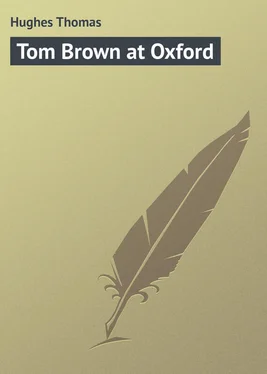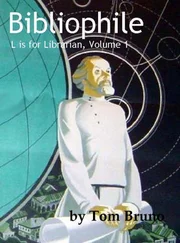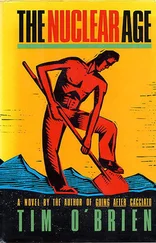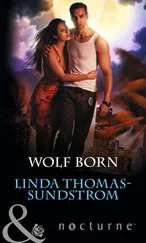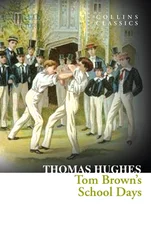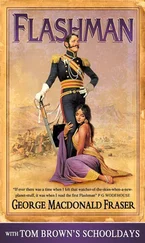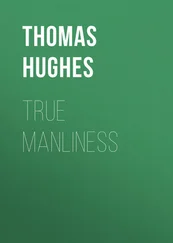Thomas Hughes - Tom Brown at Oxford
Здесь есть возможность читать онлайн «Thomas Hughes - Tom Brown at Oxford» — ознакомительный отрывок электронной книги совершенно бесплатно, а после прочтения отрывка купить полную версию. В некоторых случаях можно слушать аудио, скачать через торрент в формате fb2 и присутствует краткое содержание. Жанр: foreign_prose, foreign_language, на английском языке. Описание произведения, (предисловие) а так же отзывы посетителей доступны на портале библиотеки ЛибКат.
- Название:Tom Brown at Oxford
- Автор:
- Жанр:
- Год:неизвестен
- ISBN:нет данных
- Рейтинг книги:5 / 5. Голосов: 1
-
Избранное:Добавить в избранное
- Отзывы:
-
Ваша оценка:
- 100
- 1
- 2
- 3
- 4
- 5
Tom Brown at Oxford: краткое содержание, описание и аннотация
Предлагаем к чтению аннотацию, описание, краткое содержание или предисловие (зависит от того, что написал сам автор книги «Tom Brown at Oxford»). Если вы не нашли необходимую информацию о книге — напишите в комментариях, мы постараемся отыскать её.
Tom Brown at Oxford — читать онлайн ознакомительный отрывок
Ниже представлен текст книги, разбитый по страницам. Система сохранения места последней прочитанной страницы, позволяет с удобством читать онлайн бесплатно книгу «Tom Brown at Oxford», без необходимости каждый раз заново искать на чём Вы остановились. Поставьте закладку, и сможете в любой момент перейти на страницу, на которой закончили чтение.
Интервал:
Закладка:
"But I know you get very sick of all that often, for I've heard you say as much half-a-dozen times in the little time I've been here."
"Why, you don't want to deny me the Briton's privilege of grumbling, do you?" said Drysdale, as he flung his legs up on the sofa, crossing one over the other as he lounged on his back – his favorite attitude; "but suppose I am getting tired of it all – which I am not – what do you purpose as a substitute?"
"Take to boating. I know you could be in the first boat if you liked; I heard them say so at Smith's wine the other night."
"But what's to prevent my getting just as tired of that? Besides, it's such a grind. And then there's the bore of changing all one's habits."
"Yes, but it's such splendid hard work," said Tom, who was bent on making a convert of his friend.
"Just so; and that's just what I don't want; the 'books and work and healthful play' line don't suit my complaint. No, as my uncle says, 'a young fellow must sow his wild oats,' and Oxford seems a place especially set apart by Providence for that operation."
In all the wild range of accepted British maxims there is none, take it for all in all, more thoroughly abominable than this one, as to the sowing of wild oats. Look at it on what side you will, and you can make nothing but a devil's maxim of it. What a man – be he young, old, or middle-aged – sows, that , and nothing else shall he reap. The one only thing to do with wild oats, is to put them carefully into the hottest part of the fire, and get them burnt to dust, every seed of them. If you sow them no matter in what ground, up they will come, with long tough roots like couch grass, and luxuriant stalks and leaves, as sure as there is a sun in heaven – a crop which it turns one's heart cold to think of. The devil, too, whose special crop they are, will see that they thrive, and you, and nobody else, will have to reap them; and no common reaping will get them out of the soil, which must be dug down deep again and again. Well for you if with all your care you can make the ground sweet again by your dying day. "Boys will be boys" is not much better, but that has a true side to it; but this encouragement to the sowing of wild oats, is simply devilish, for it means that a young man is to give way to the temptations and follow the lusts of his age. What are we to do with the wild oats of manhood and old age – with ambition, over-reaching the false weights, hardness, suspicion, avarice – if the wild oats of youth are to be sown, and not burnt? What possible distinction can be drawn between them? If we may sow the one, why not the other?
But to get back to our story. Tom went away from Drysdale's rooms that night (after they had sorted all the tackle, which was to accompany the fishing expedition, to their satisfaction) in a disturbed state of mind. He was very much annoyed at Drysdale's way of talking, because he was getting to like the man. He was surprised and angry at being driven more and more to the conclusion that the worship of the golden calf was verily and indeed rampant in Oxford – side by side, no doubt, with much that was manly and noble, but tainting more or less the whole life of the place. In fact, what annoyed him most was, the consciousness that he himself was becoming an idolater. For he couldn't help admitting that he felt much more comfortable when standing in the quadrangles or strolling in the High Street with Drysdale in his velvet cap, and silk gown, and faultless get-up, than when doing the same things with Hardy in his faded old gown, shabby loose overcoat, and well-worn trousers. He wouldn't have had Hardy suspect the fact for all he was worth, and hoped to get over the feeling soon; but there it was unmistakably. He wondered whether Hardy had ever felt anything of the kind himself.
Nevertheless, these thoughts did not hinder him from sleeping soundly, or from getting up an hour earlier than usual to go and see Drysdale start on his expedition.
Accordingly, he was in Drysdale's rooms next morning betimes, and assisted at the early breakfast which was going on there. Blake was the only other man present. He was going with Drysdale, and entrusted Tom with a message to Miller and the Captain, that he could not pull in the boat that day, but would pay a waterman to take his place. As soon as the gate opened, the three, accompanied by the faithful Jack, and followed by Drysdale's scout, bearing overcoats, a splendid water-proof apron lined with fur, and the rods and reels, sallied out of the college, and sought the livery stables, patronized by the men of St. Ambrose's. Here they found a dog cart all ready in the yard, with a strong Roman-nosed, vicious-looking, rat-tailed horse in the shafts, called Satan by Drysdale; the leader had been sent on to the first turnpike. The things were packed, and Jack, the bull-dog, hoisted into the interior in a few minutes; Drysdale produced a long straight horn, which he called his yard of tin (probably because it was made of brass), and after refreshing himself with a blast or two, handed it over to Blake, and then mounted the dog cart, and took the reins. Blake seated himself by his side; the help who was to accompany them got up behind, and Jack looked wisely out from his inside place over the back-board.
"Are we all right?" said Drysdale, catching his long tandem whip into a knowing double thong.
"All right, sir," said the head ostler, touching his cap.
"You'd better have come, my boy," said Drysdale to Tom, as they trotted off out of the yard; and Tom couldn't help envying them as he followed, and watched the dog cart lessening rapidly down the empty street, and heard the notes of the yard of tin, which Blake managed to make really musical, borne back on the soft western breeze. It was such a pleasant morning for fishing.
However, it was too late to repent, had he wished it; and so he got back to chapel, and destroyed the whole effect of the morning service on Miller's mind, by delivering Blake's message to that choleric coxswain as soon as chapel was over. Miller vowed for the twentieth time that Blake should be turned out of the boat, and went off to the Captain's rooms to torment him, and consult what was to be done.
The weather continued magnificent – a soft, dull grey March day, and a steady wind; and the thought of the lucky fishermen, and visions of creels filled with huge three-pounders, haunted Tom at lecture, and throughout the day.
At two o'clock he was down at the river. The college eight was to go down for the first time in the season to the reached below Nuneham, for a good training pull, and he had notice, to his great joy, that he was to be tried in the boat. But, great, no doubt, as was the glory, the price was a heavy one. This was the first time he had been subjected to the tender mercies of Miller, the coxswain, or had pulled behind the Captain; and it did not take long to convince him that it was a very different style of thing from anything he had as yet been accustomed to in the freshman's crew. The long steady sweep of the so-called paddle tried him almost as much as the breathless strain of the spurt.
Miller, too, was in one of his most relentless moods. He was angry at Blake's desertion, and seemed to think that Tom had something to do with it, though he simply delivered the message which had been entrusted to him; and so, though he distributed rebuke and objurgation to every man in the boat except the Captain, he seemed to our hero to take particular delight in working him. There he stood in the stern, the fiery little coxswain, leaning forward with a tiller-rope in each hand, and bending to every stroke, shouting his warnings, and rebukes, and monitions to Tom, till he drove him to his wits' end. By the time the boat came back to Hall's, his arms were so numb that he could hardly tell whether his oar was in or out of his hand; his legs were stiff and aching, and every muscle in his body felt as if it had been pulled out an inch or two. As he walked up to College, he felt as if his shoulders and legs had nothing to do with one another; in short, he had had a very hard day's work, and, after going fast asleep at a wine-party, and trying in vain to rouse himself by a stroll in the streets, fairly gave in about ten o'clock and went to bed without remembering to sport his oak.
Читать дальшеИнтервал:
Закладка:
Похожие книги на «Tom Brown at Oxford»
Представляем Вашему вниманию похожие книги на «Tom Brown at Oxford» списком для выбора. Мы отобрали схожую по названию и смыслу литературу в надежде предоставить читателям больше вариантов отыскать новые, интересные, ещё непрочитанные произведения.
Обсуждение, отзывы о книге «Tom Brown at Oxford» и просто собственные мнения читателей. Оставьте ваши комментарии, напишите, что Вы думаете о произведении, его смысле или главных героях. Укажите что конкретно понравилось, а что нет, и почему Вы так считаете.
